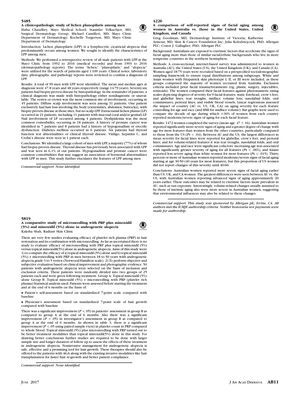A Clinicopathologic Study of Lichen Planopilaris Among Men
June 2017
in “
Journal of The American Academy of Dermatology
”

TLDR Most men with lichen planopilaris had it confirmed by biopsy and often had thyroid issues, sexual dysfunction, or prostate cancer, hinting at a link with hormonal problems.
The document presents findings from a retrospective review of 99 men diagnosed with lichen planopilaris (LPP) at the Mayo Clinic between 1992 and 2016. The study found that the mean and median ages at diagnosis were 47.8 and 48 years, respectively, with a range of 14-79 years. Seventy-six patients had biopsy-proven LPP, while the rest were clinically diagnosed. The most common site of involvement was the vertex or crown, seen in 45 patients, and 31 patients had diffuse scalp involvement. One patient had LPP exclusively on the body without scalp involvement. Comorbidities included dyslipidemia in 18 patients, prostate cancer in 7, hypogonadism or erectile dysfunction in 8, diabetes mellitus in 6, and thyroid abnormalities in 6. Other conditions like vitiligo, hepatitis C, and Crohn's disease were each found in one patient. The study concluded that a majority of the men had biopsy-proven LPP, with thyroid disease, hypogonadism, and prostate cancer being common comorbidities, suggesting a possible association with hormonal abnormalities in men with LPP.





